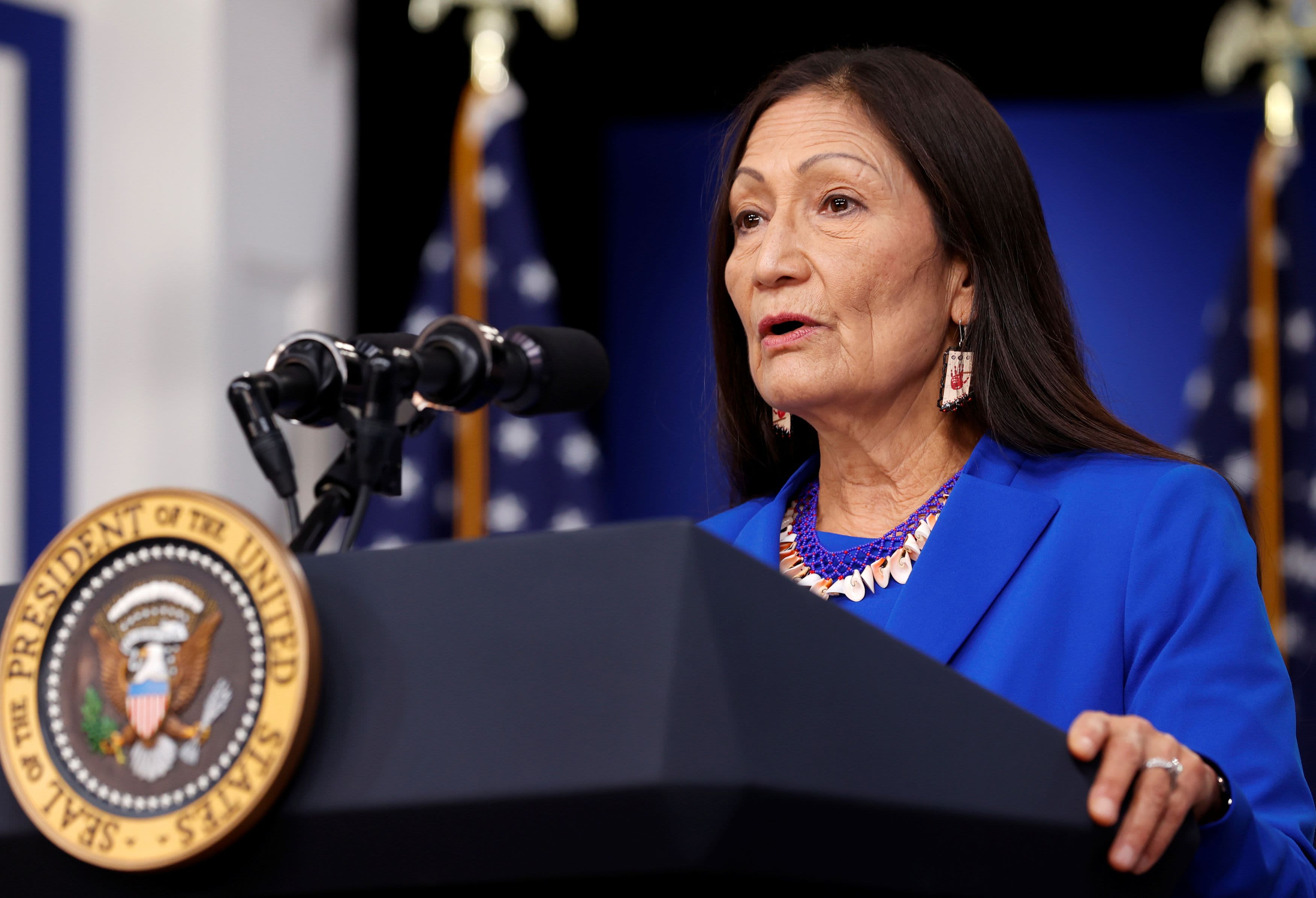
U.S. Interior Secretary Deb Haaland addresses the Tribal Nations Summit from an auditorium on the White House campus in Washington, D.C., November 15, 2021.
Jonathan Ernst | Reuters
U.S. Interior Secretary Deb Haaland announced Friday that the federal agency will establish a process to review and replace racially derogatory terms used in place names.
Haaland, the nation’s first Native American Cabinet secretary, said a newly-created federal advisory committee will review and recommend changes to derogatory federal land names, according to a U.S. Department of Interior press release.
The committee, through a new Derogatory Geographic Names Task Force, will consult with the public and tribal representatives on potential place name changes.
Haaland also declared the term “squaw,” a pejorative for Indigenous women, to be derogatory, the press release said. She ordered the Board Geographic Names, the federal body tasked with naming geographic places, to develop procedures that would remove the term from federal usage.
“Squaw” currently appears in the names of more than 650 federal land units, according to Board Geographic Names data.
“Racist terms have no place in our vernacular or on our federal lands. Our nation’s lands and waters should be places to celebrate the outdoors and our shared cultural heritage – not to perpetuate the legacies of oppression,” Haaland said in the press release.
“Today’s actions will accelerate an important process to reconcile derogatory place names and mark a significant step in honoring the ancestors who have stewarded our lands since time immemorial,” she said.
Haaland noted that it typically takes years for the Board of Geographic Names to replace place names as their review process is by a case-by-case basis. There are currently hundreds of name changes pending before the board, according to the press release.
The new federal advisory committee aims to make this process more efficient by facilitating a “proactive and systematic development and review” of name change proposals, the press release said.
Some advocates welcomed Haaland’s Friday announcement, saying that the move by the federal government is long overdue.
“Names that still use derogatory terms are an embarrassing legacy of this country’s colonialist and racist past,” said John Echohawk, executive director of the Native American Rights Fund, in a statement. “It is well-past time for us, as a nation, to move forward, beyond these derogatory terms, and show Native people — and all people — equal respect.”
“We applaud Secretary Halaand for taking action to make our federal government and public lands more inclusive and respectful of Native peoples,” Echohawk continued.
The Secretary of Interior and Board of Geographic Names have made similar moves to replace derogatory place names and terms over the years.
In 1962, then-Secretary of Interior Stewart Udall directed the board to eliminate the use of the N-word. And in 1974, the board identified a pejorative term for “Japanese” as derogatory and eliminated its use as well.
The board also voted in 2008 to change the name of a mountain in Phoenix from “Squaw” Peak to Piestewa Peak, in honor of Army Spc. Lori Piestewa, the first Native American woman to die in combat while serving in the U.S. military.
Some states have also passed legislation to prohibit the use of the word “squaw” in place names, including Oregon, Maine, Montana and Minnesota, according to the press release.
Earlier this year, Congressional Democrats also introduced legislation in July to rename more than 1,000 places in the U.S. that feature offensive language and racist slurs, Business Insider reported.




